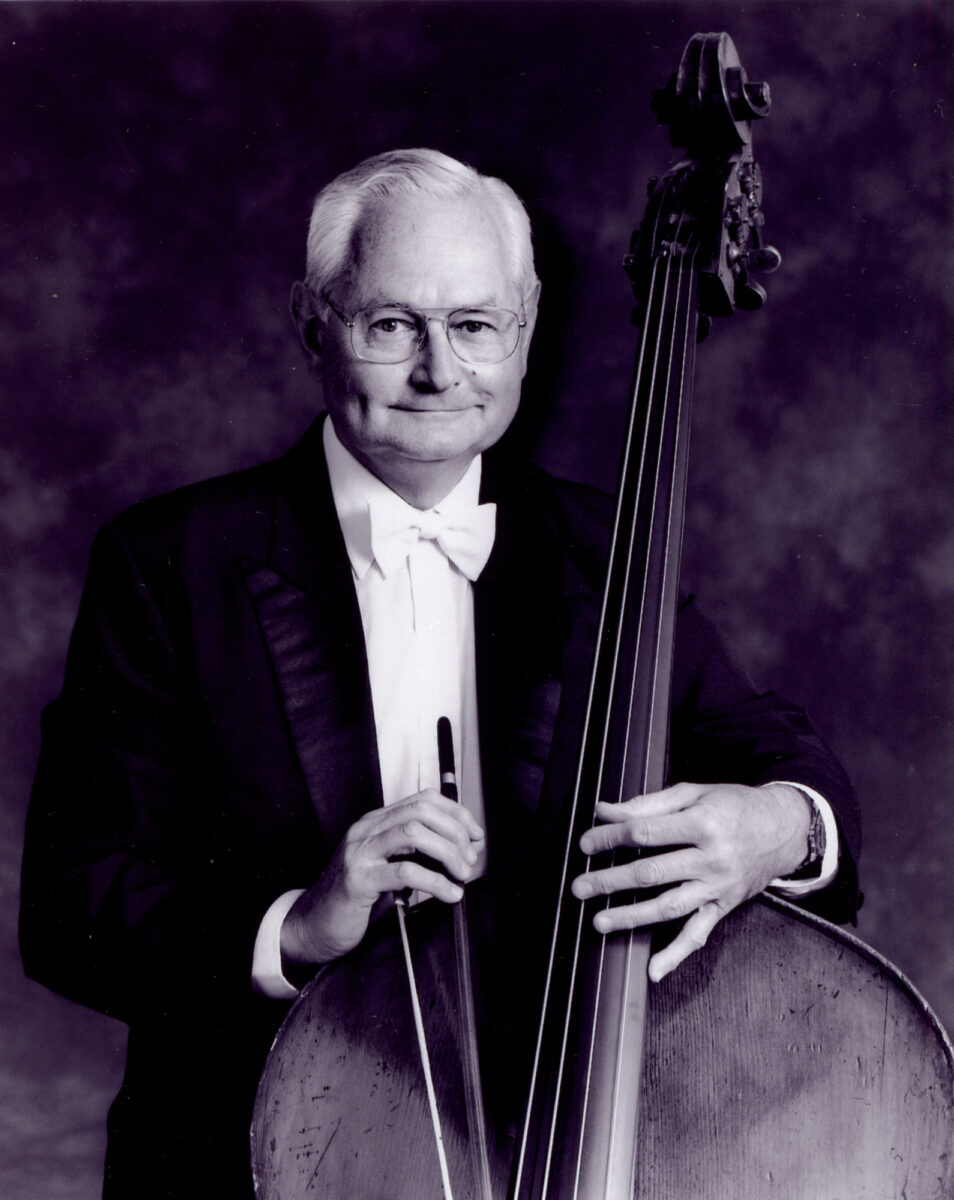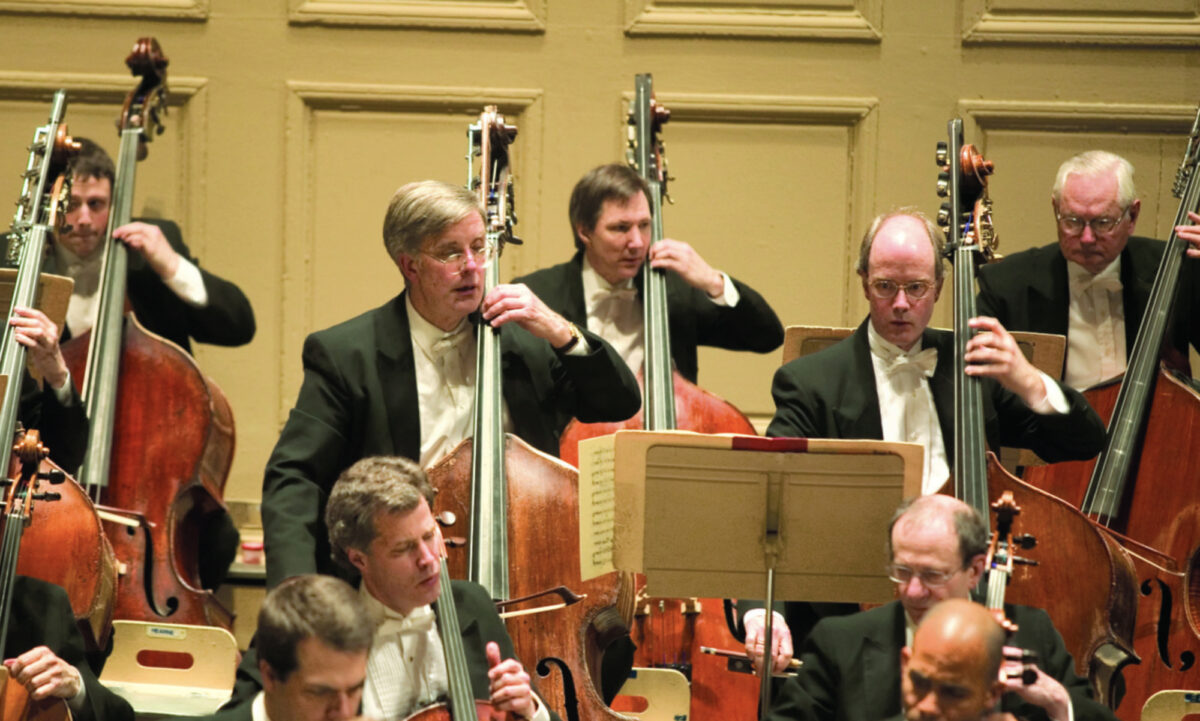InTune
John Salkowski: Retired BSO Musician Leaves Musical Legacy Through Giving
The Boston Symphony Orchestra has a centuries-long legacy, but such a legacy would be impossible without the generous donors who have helped sustain the organization in good times and in bad. Donors have a variety of relationships with the orchestra, encompassing the wide range of people who the music impacts. However, some, like John Salkowski, have an even deeper connection to the organization.
John Salkowski is a retired bass player with the Boston Symphony Orchestra, having been a member for more than 40 years. Through his tenure, he watched the organization grow and evolve. "In my opinion, when I first started at the BSO there were problems. It wasn't as great as it is today," he shares. "It took a lot of hard work by the musicians, conductors, and the BSO management to turn things around." Over the 40 years he played bass with the orchestra, he made music with the likes of Leonard Bernstein, whom he considers the most important musician to pass through his career, as well as cellist Mstislav Rostropovich, violinist Isaac Stern, and pianists Arthur Rubinstein and Van Cliburn, all of whom left indelible impressions.

The musicians and the music—Betrich Smetena’s "Ma Vlast (My Fatherland)" is easily Salkowski’s favorite piece he played with the orchestra—are not the only things that made his experience memorable and special. For Salkowski, the Boston Symphony Orchestra is special in and of itself. "Boston is rooted in tradition, and the BSO is one of Boston's great traditions," he says. "It's been able to tap into all of the history and nostalgia, while continuing to innovate and lead," he adds, noting that this is why the organization has been so successful and resonated with so many. He also mentions how regularly playing on the organization’s three stages—Symphony Hall in Boston and both the Koussevitzky Music Shed and Ozawa Hall in Tanglewood—made the experience unlike any other. "No other city or symphony provides that opportunity," he notes.
As a musician with the orchestra, Salkowski played an 1835 Kennedy bass, an incredibly important part of his musical journey that he says helped open many doors for him. In May 2021, he decided to gift the bass outright to the orchestra, where it is now being used by bassist Todd Seeber, Eleanor L. and Levin H. Campbell chair. Why did he choose to donate this instrument that accompanied for his musical life? "Instruments are meant to be played, not hung in a museum," he says. "Hopefully, it will provide an opportunity to inspire another musician to a great career with the BSO."

In addition to gifting his bass, Salkowski included a bequest to the Boston Symphony Orchestra in his will, making him a member of the organization’s Walter Piston Society. Regarding this decision, he reflected on the tradition of the orchestra, and traces it back to founder Henry Lee Higginson, who sustained the organization through his personal funds for many years. This tradition, he says, is now the current generation’s responsibility to continue.
In looking back, Salkowski is proud of the impact that the orchestra had on his life. "I gave all I had to the BSO, and in return, received so much more back," he says. He knows that the orchestra, which has changed a lot from when he first began, will continue to change, but knows that the orchestra will continue to share the joy of music with the people of Boston, the Berkshires, and beyond. "It's a legacy that I was a part of," Salkowski explains, "and I take great pride in that."
